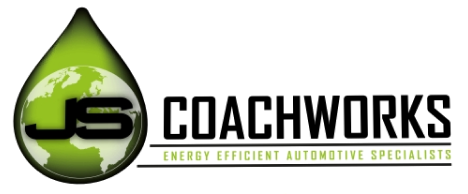No matter how careful you are on the road, it’s nearly impossible to avoid every bump, chip, or scratch your car may encounter. However, while dents can be easily spotted, car paint damage repair is often overlooked—until the problem worsens. From minor scuffs to deeper corrosion, paint damage can significantly reduce your vehicle’s value and make it appear older than it is.
Knowing the types of car paint damage, their causes, and how to repair them can help you maintain your car’s appearance and protect it from long-term harm.
At JS Coachworks, we specialise in restoring vehicles to showroom quality. From scuffs to complete resprays, our expert team delivers flawless finishes with trusted techniques. Drive in for a quick assessment and drive out with confidence.
Call us on 020 8699 3488 or email us at info@jscoachworks.co.uk today!
At JS Coachworks, we restore your vehicle’s paintwork to perfection—eliminating scratches, scuffs, and chips with expert care and flawless attention to detail.
Types Of Car Paint Damage
Your car’s paint isn’t just for show—it’s the first line of defence against rust, moisture, and the elements. Here are the most common types of damage that affect your vehicle’s paintwork:
1. Scratches
These are the most common and come in several forms:
- Evident coat scratches: Shallow and on the surface.
- Paint layer scratches: Deeper, exposing the colour layer.
- Primer or metal scratches: The deepest type, sometimes leading to rust.
Whether caused by keying, shopping trolleys, or tight parking spaces, car scratch repair should be handled quickly to avoid further deterioration.
2. Paint Scuffs
Scuffs occur when another object rubs against your car’s surface without cutting into the paint. They often look like white streaks. While they may seem minor, professional paint scuff removal ensures a clean finish without affecting surrounding areas.
3. Oxidation
If your car’s clear coat wears off, the paint becomes exposed to oxygen and UV rays. Over time, this causes fading and a dull, chalky look. Left untreated, oxidation can cause the paint layer to break down entirely.
4. Stone Chips
Small rocks and road debris can chip away at your paint, often affecting the bonnet, bumper, or lower doors. Though tiny, chips can expose the metal underneath, making your car more prone to rust.
5. Bird Droppings And Tree Sap
Organic damage might seem harmless, but bird droppings and sap are acidic and can quickly corrode the clear coat, especially in warm weather.
Signs Of Rust & Primer Corrosion
Rust is more than just a cosmetic issue—it’s a warning that your car’s protective layers have been compromised. You may see bubbling under the paint, reddish-brown spots, or even flaking metal. These are signs of primer corrosion and must be addressed promptly.
Early detection and car paintwork repair can prevent the need for complete panel replacement, especially when caught before the rust spreads.
How To Fix Car Paintwork
There’s no one-size-fits-all solution, as repairs depend on the depth and extent of the damage. Here’s a general guide to the most effective methods of car paint damage repair:
1. For Light Scratches And Scuffs
- Use polishing compounds or buffing pads to reduce the visibility of the vehicle paint damage fix.
- For slightly deeper scuffs, touch-up paint may be needed.
2. For Deeper Scratches And Chips
- Sand the damaged area.
- Apply primer, colour-matched paint, and a clear coat.
- Finish with polish for shine.
This process is best handled by professionals through car body scratch repair, especially for exact colour-matching.
3. For Rust Or Corroded Areas
- Remove rusted sections carefully.
- Apply rust treatment and repaint.
- Protect with a sealant or clear coat.
This is often done in conjunction with auto body repair to maintain structural integrity.
4. For Large Or Extensive Damage
In cases where panels are affected across multiple spots or the paint has fully oxidised, a car respray service may be necessary. This involves removing the old paint, prepping the surface, and applying a fresh, even coat across the vehicle or specific areas.
Professionals may also offer automotive paint correction to restore the gloss and eliminate swirl marks.
CONTACT JS COACHWORKS
Car Body Maintenance
Routine care reduces the need for constant fixes. Here are some simple habits that can extend the life of your car’s paint:
- Wash your car regularly to remove harmful residues.
- Use quality wax or sealant every few months.
- Park in the shade or use a cover to reduce UV damage.
- Address bird droppings or sap immediately.
- Visit a trusted car garage for regular vehicle repair check-ups.
With proper car body maintenance, you can preserve your car’s appearance and value over time.
When Should You Seek Professional Help?
While DIY kits can handle minor scratches, deeper issues or colour-matching problems are best left to trained professionals. If you’re unsure, look out for:
- Colour differences in patched areas
- Spreading rust or bubbling paint
- Poor results from home treatments
A skilled team can offer lasting solutions and a smooth, factory-quality finish through expert car dent and paint repair.
Conclusion
From tiny chips to visible scratches, paint damage is more than just an eyesore; it can also compromise the structural integrity of a vehicle. Left untreated, it can lead to rust, corrosion, and costly repairs. The key is knowing what to look for, taking early action, and trusting a professional to do the job right.
Your car is one of your most valuable assets—so treat it that way.
At JS Coachworks, we combine precision, experience, and passion to restore cars to their best. Whether it’s a quick car scratch repair or a complete car respray service, we’ve got you covered.
Contact us today and see why we’re trusted across London for premium car services and exceptional results.
